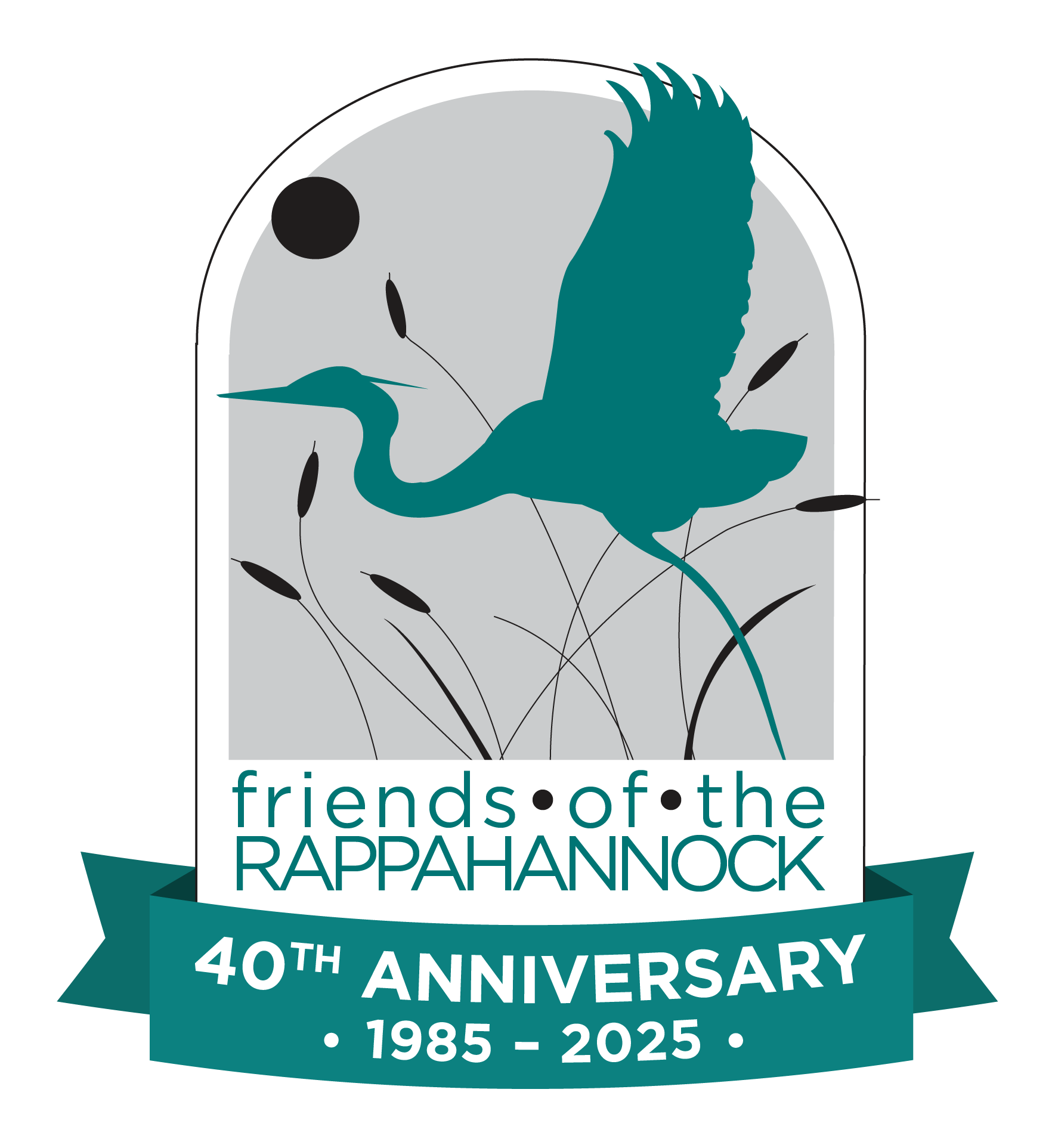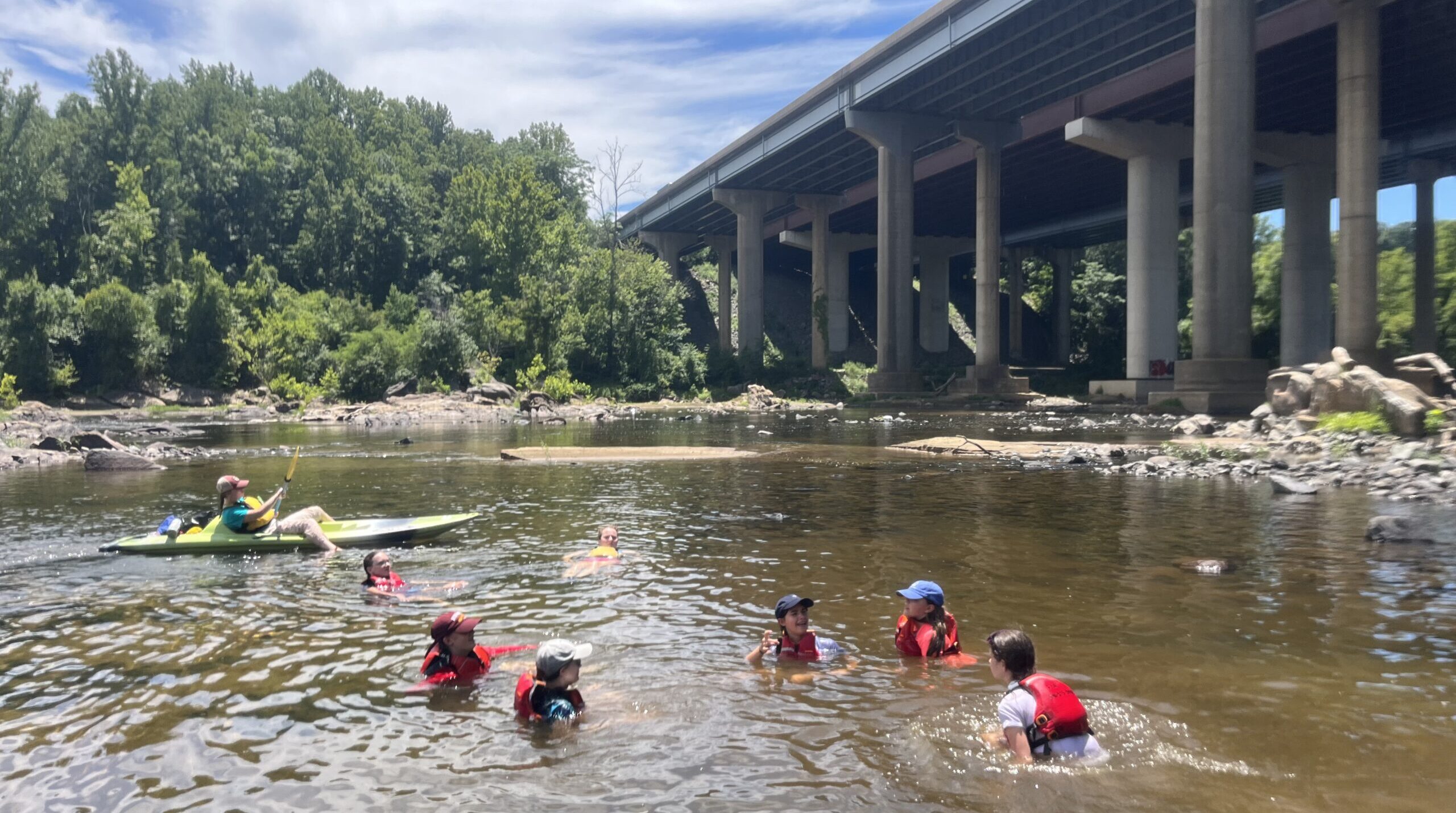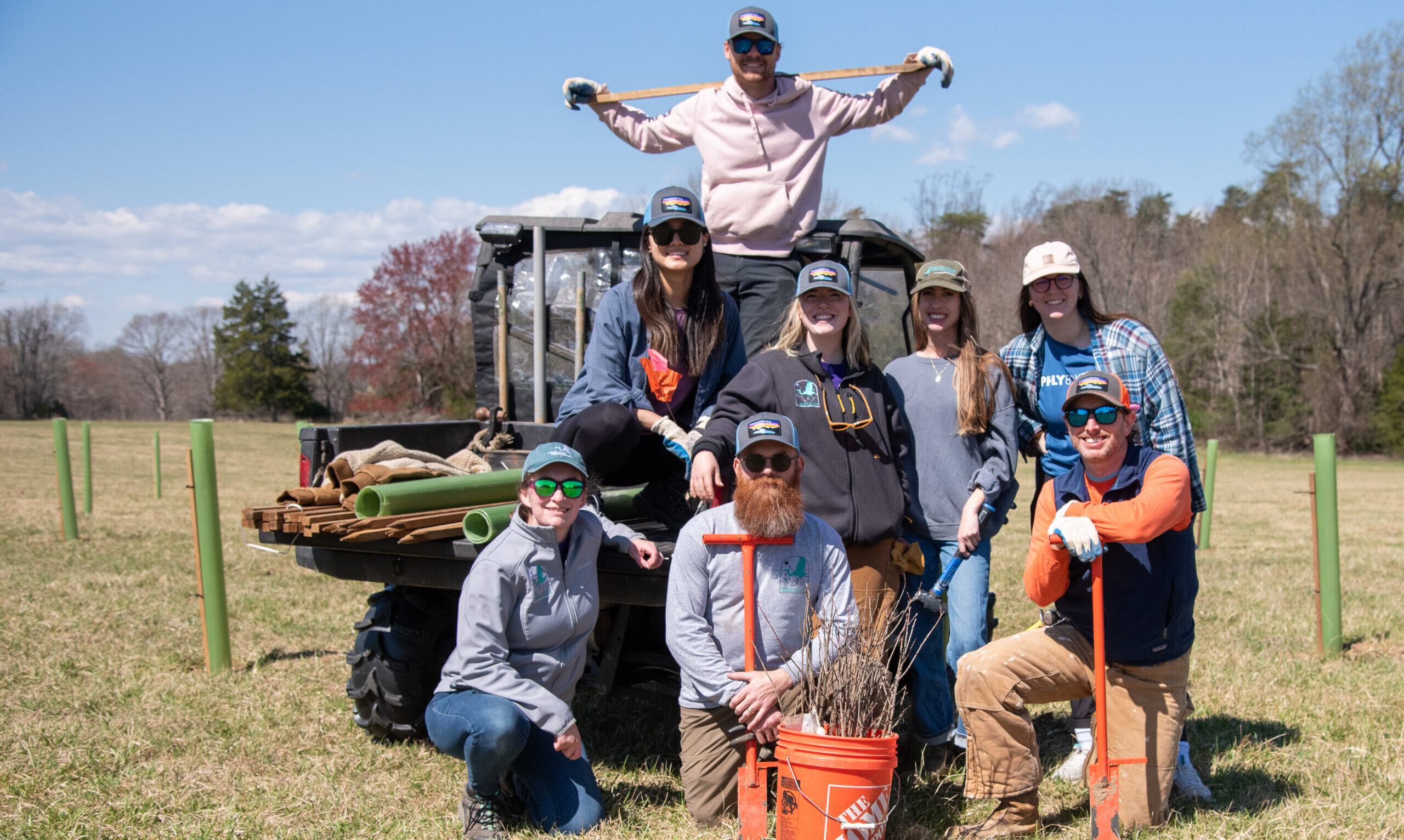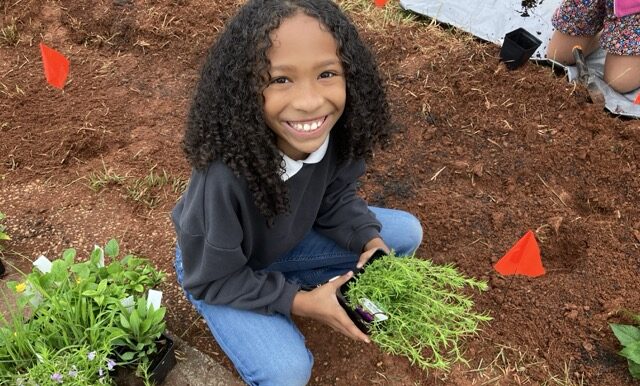Restoration
Oyster Restoration
Revitalizing the Rappahannock’s Oyster Reefs
Oyster Restoration Programs
Our oyster reef restoration programs partner with local residents, schools, watermen and oyster farmers, river bottom leaseholders, and other partner groups and businesses
Oyster Questions?
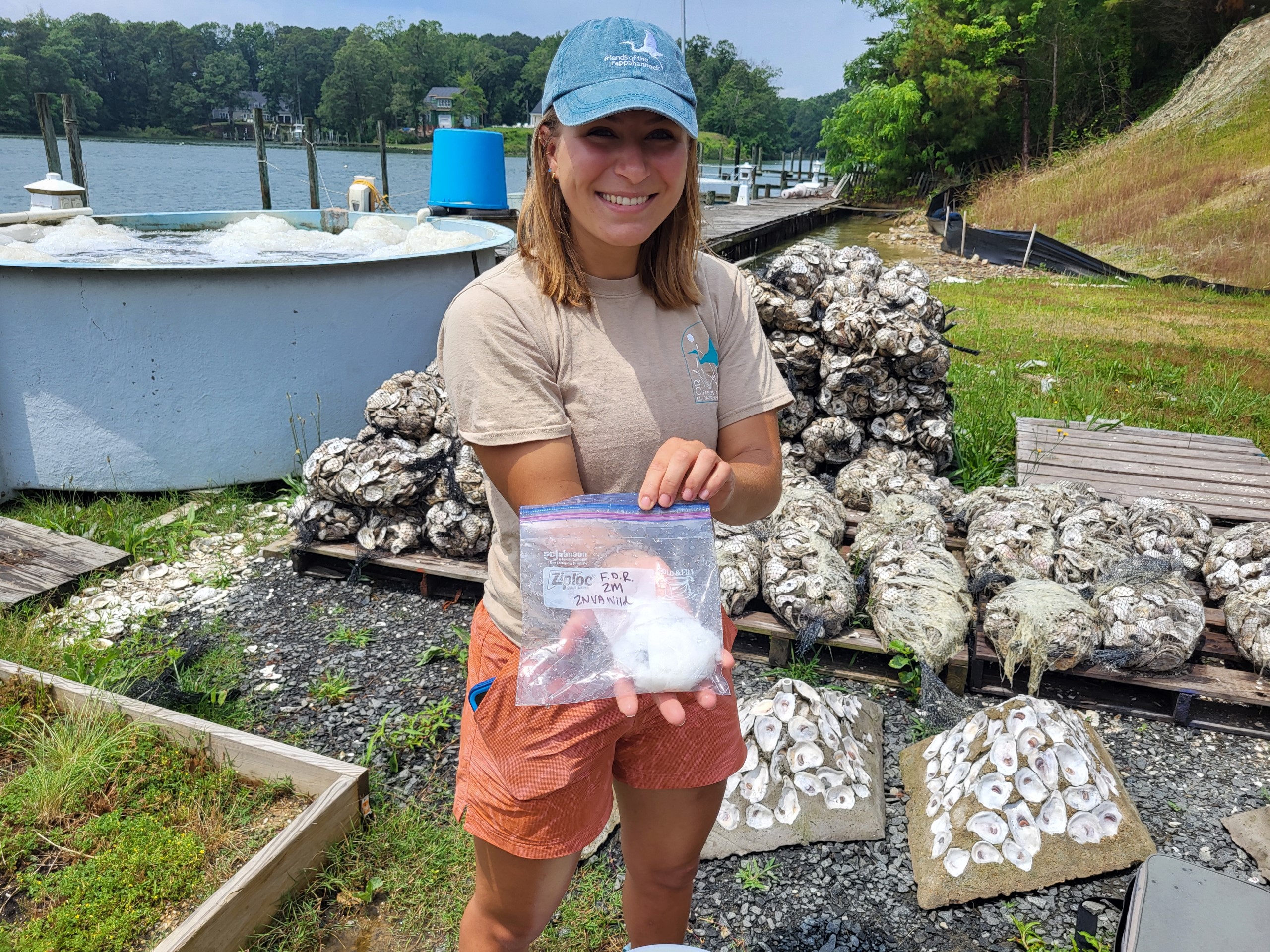
Jen Sagan
Oyster Restoration Specialist
jennifer.sagan@riverfriends.org
Oyster Programming
The goals of these programs are to promote a clean and healthy Rappahannock River and its tributaries, enhance habitat for fish and wildlife, restore oyster populations to sustainable levels, and ensure a resilient and bio-diverse broodstock is proliferating in our tidal ecosystems.
Oyster Recycling
Oyster shells are in high demand for reef restoration, yet many people are unknowingly throwing away an environmentally valuable resource. Recycled shell not only prevents unnecessary waste but is utilized in restoration projects that provide oyster larvae with a place to settle and grow, thereby forming oyster reefs. These reefs provide food and habitat for native species and attenuate wave action to protect shorelines from erosion. The oysters that grow in these reefs filter the water, taking in excess nutrients and sediment that pollute waterways. FOR is working with local businesses and individuals to promote and expand the recycling of oyster shells throughout the Rappahannock River watershed and beyond.
We are grateful to our participating partners at: Reedville Market, Port Oysteria, Urban Oyster, The Dog and Oyster Micro-Vineyard, the Tides Inn, Green Ribbon, Dredge, Something Different, and Ristorante Renatos.
Have oyster shells to recycle?
Drop them off at these locations:
Spat on Shell Program
When oysters reproduce, one of their early life stages is a small larvae floating in the water column. These larvae are searching for a safe home where they can settle and live for the rest of their lives. Given the right conditions, the larvae can settle on objects like dock pilings, rocks, or other hard surfaces, but the best place for them to land is on other oyster shells. When the oyster larvae land on the oyster shell (or the other hard objects), it is called spat.
For our operation with the Tides Inn, we use a large tank that is pumping in and filtering water from the River. There is also an aerator in the tank that is constantly bubbling the water, to ensure better flow and movement. We place 200 bags of oyster shells and 2 MILLION oyster larvae in this tank. The larvae settle on the shells in the bags and we place that spat-on-shell out on our reefs for restoration.
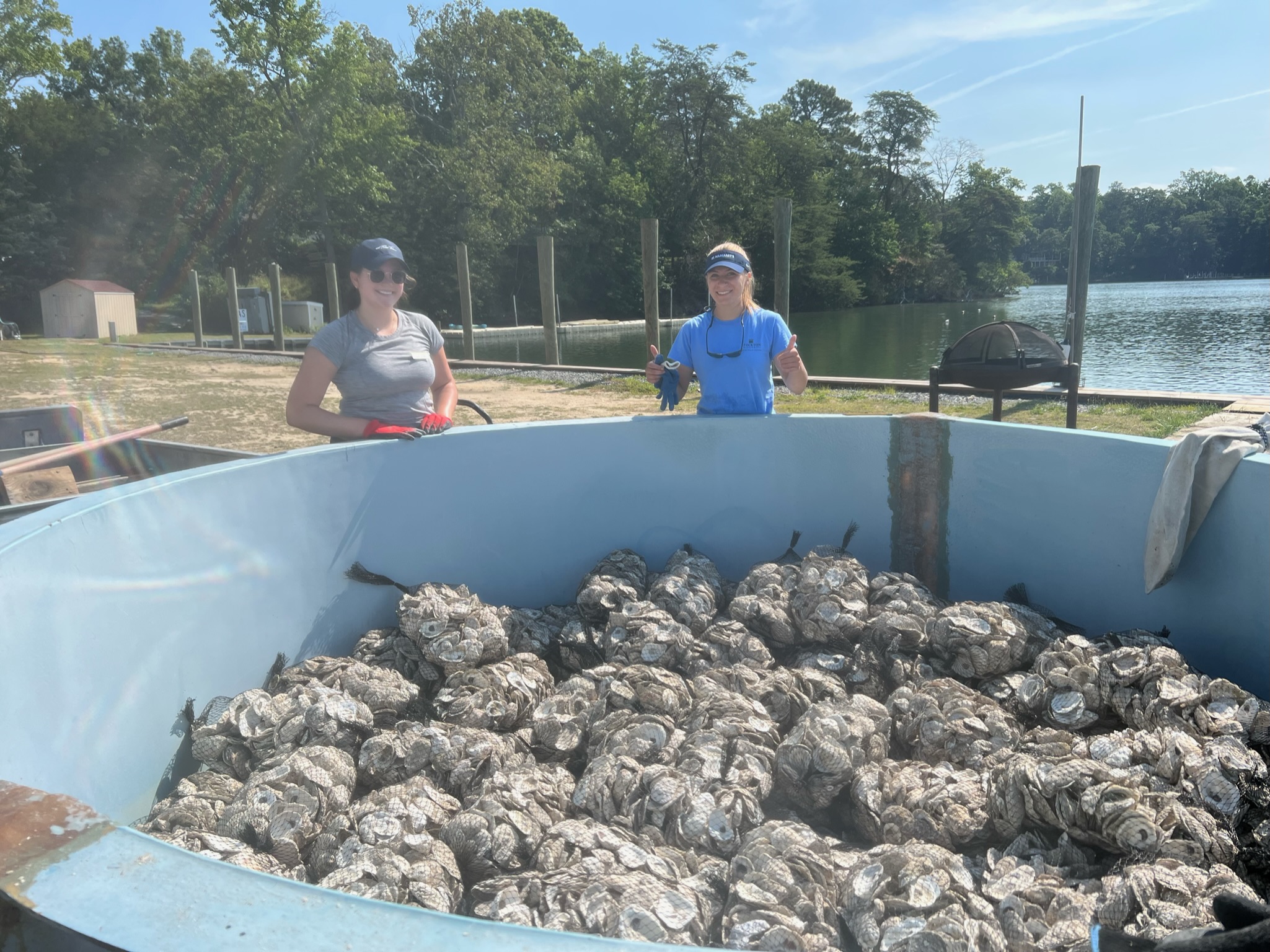
GET INVOLVED!
For a Cleaner, Healthier River
Volunteer with us to restore oyster reefs along the Rappahannock River! WE regularly need volunteers to support oyster recycling bagging and more!
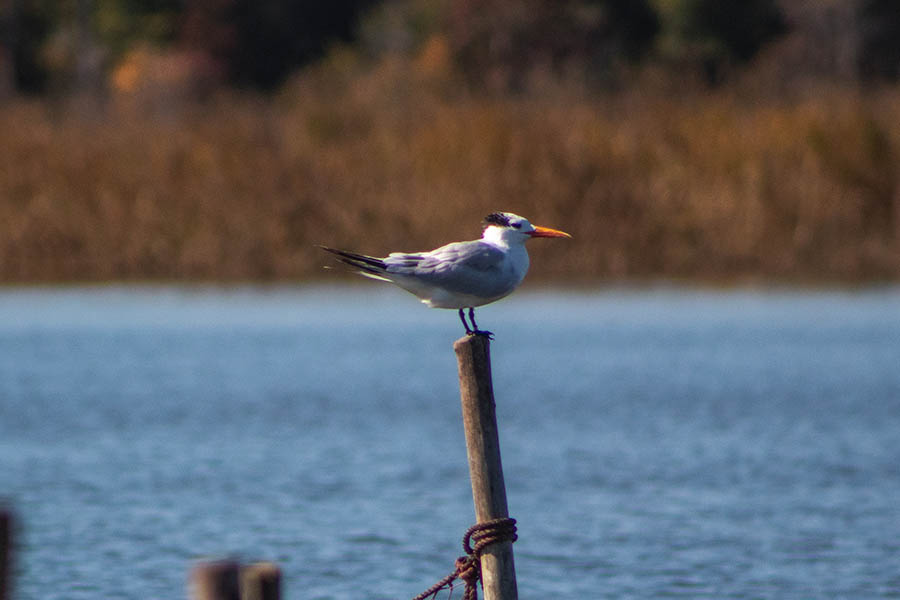
The Clean Carters Creek initiative is a collaboration of local partners including Kellum Seafood, the Tides Inn, and individual oyster lease owners to restore oyster habitat within the Creek. Carters Creek provides a unique opportunity for collaborative oyster reef restoration due to high oyster reproduction rates within Carters Creek and active community involvement.
Partners: The Tides Inn, Kellum Seafood, The Dog and Oyster Micro-Vineyard, Chesapeake Academy, GreenFin Studio, Chesapeake Bay Foundation, Dredge.
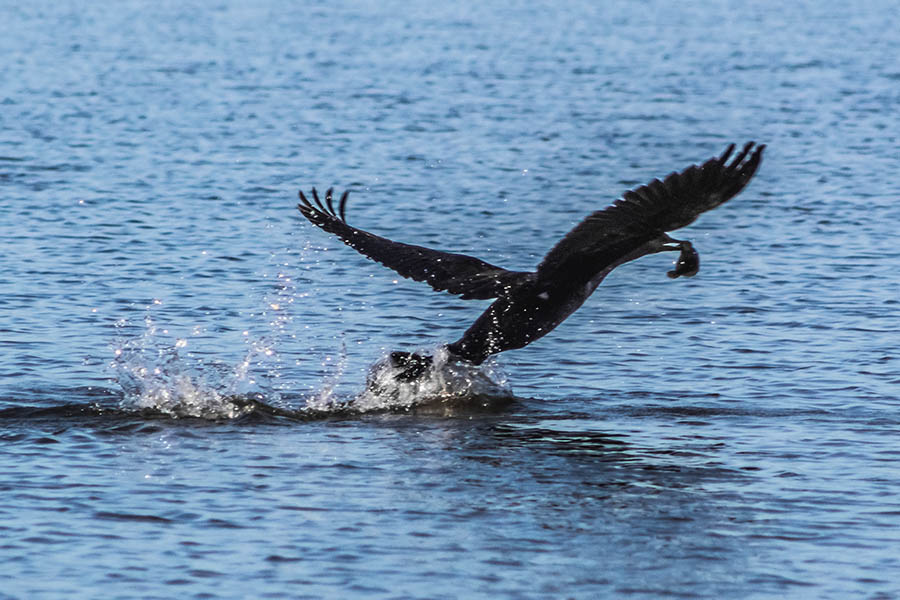
The Restore Urbanna Creek initiative is a partnership of local nonprofits, schools, seafood businesses, funders, and the Urbanna Oyster Festival Foundation. The goal of this partnership is to restore a thriving population of oysters in Urbanna Creek by conducting oyster education and outreach, monitoring water quality, and restoring oyster reefs on existing leases.
Partners: Urbanna Oyster Festival Foundation, Shores & Ruark, Chesapeake Bay Governor’s School, Christchurch School, Oyster Seed Holdings, Green Fin Studio, Chesapeake Bay Foundation, National Fish and Wildlife Foundation, River Counties Community Foundation, Urban Oyster.

